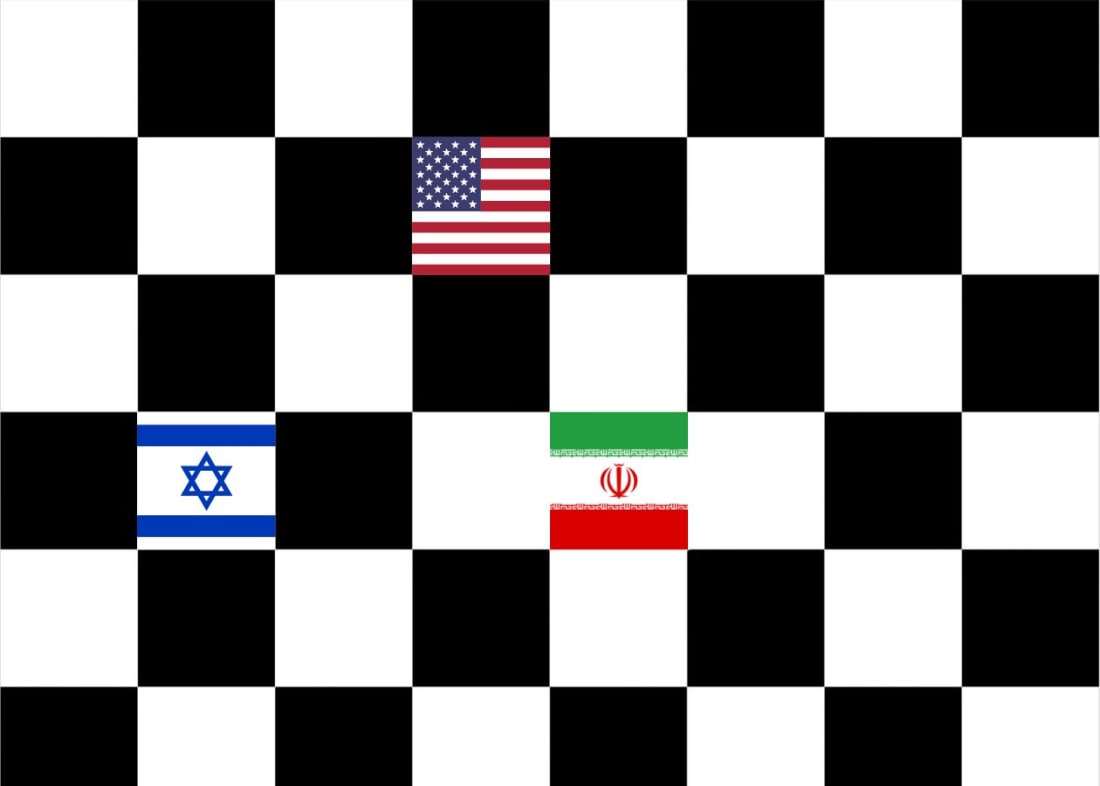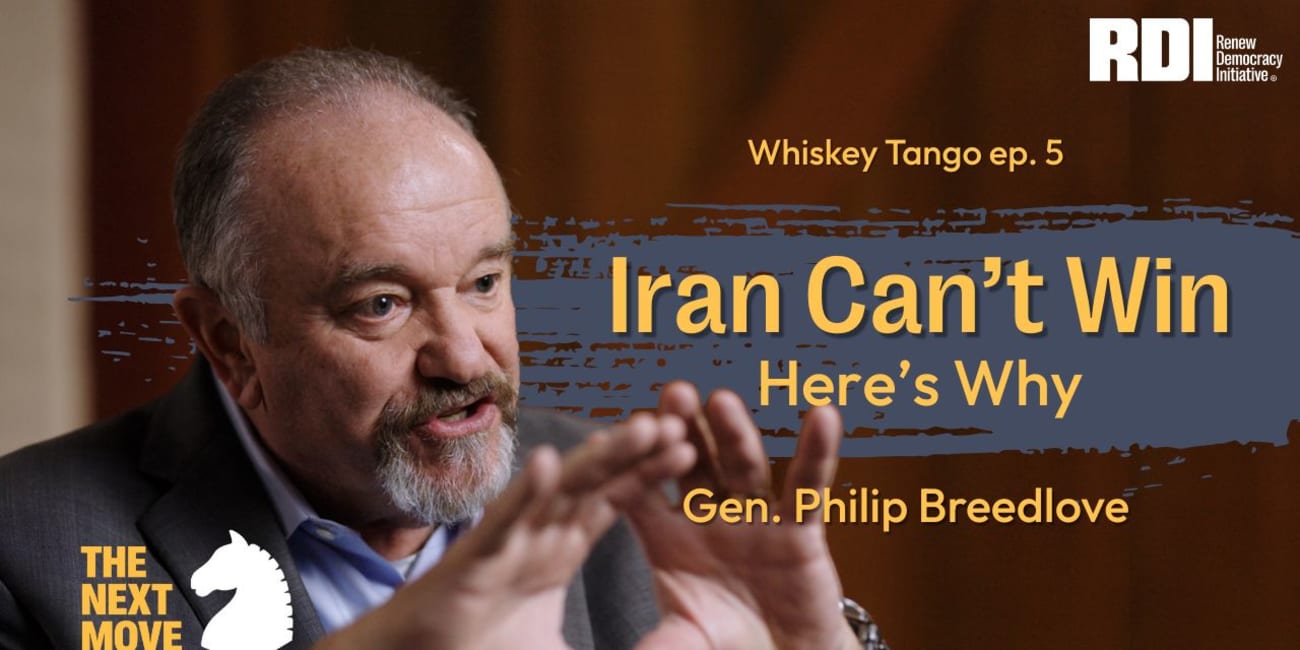|
Iran and America: No More Kicking the Can Down the Road
Trump’s strikes didn’t start the crisis—they ended the illusion that we could avoid one.
Every time I think we can plan out the exact days and times we send out emails to subscribers, something comes up to interrupt our editorial calendar. Trump’s decision to strike Iran last night led to some feverish writing and a long conversation with Uriel about restructuring our Live tomorrow at 5 pm ET to discuss the geopolitical implications of this act on the Middle East and beyond. We’ll be exploring the implications of what happened, what might come next, and how this will impact Russian and Chinese decision-making. I hope to see you here tomorrow for insightful (and sometimes counterintuitive) analysis of what may well prove to be a historical hinge point.
In chess, there’s a moment when the action reaches a climax and a decision becomes inevitable. The game must come to an end one way or another, and a player must make a move. It may be the right call, it may be the wrong one. But it will happen.
In the twenty years since I left professional chess, I’ve found that real-world events often follow a similar pattern. So it is now in Iran, where we’ve passed the climax of the decades-long tit-for-tat between Iran on one side and the US, Israel, and their allies on the other. There was never a status quo to preserve, just the illusion of one obscuring slow but steady escalation. Most recently, Israel, with tacit American and European support, softened Iran’s air defenses and defeated its proxies in Lebanon and Syria. On that trajectory, Iran would either reach its goal of developing an atomic bomb, or the West would stop it. The flawed Obama-era nuclear deal was an attempt to temporarily stop the clock—yet it didn’t fundamentally change either side’s objectives. And there are no timeouts in chess. Someone was going to try to close things out.
Now, Donald Trump has and in so doing, he demonstrated that his campaign rhetoric about being the president of “peace” was little more than hot air. On Saturday night, the US bombed Iran’s main nuclear sites at Fordow, Natanz, and Isfahan.
On almost every question, I oppose Trump in substance, symbolism, and style. I make no secret of that. However, I still assess each individual action on its merits. I’m not alone in this position: Even Representative Adam Kinzinger—an RDI Hero of Democracy with no love lost for the president—has described this weekend’s strikes as “the right call.”
I would urge everyone to evaluate the situation with measured objectivity. If you would have condemned this attack had Obama launched it, then fair enough. But, if deep down, you know you wouldn’t have, then you shouldn’t do so here.
I think you can guess at this point that I happen to agree with President Trump’s decision to destroy Iran’s nuclear program. I understand the urge to invoke Iraq 2003, but different operations, different countries, and different presidents, are, well, different. And there are other historical analogies that will carry us to different conclusions. Israel has twice destroyed the nascent nuclear weapons infrastructure of its enemies—Iraq, in 1981, and Syria, in 2007. Those sorties didn’t kick off long wars—they averted potentially catastrophic conflicts. The Syrian Civil War was bloody enough when the dictator had poison gas and barrel bombs in his arsenal—imagine if Assad had been able to dangle a nuke over his people’s heads. At this stage, I don’t see a protracted fight between the US and the Islamic Republic. Knocking out Iran’s main nuclear sites may well bring things to a swift conclusion.
Looking at the domestic political reaction in the US, it’s borderline political malpractice to declare a constitutional crisis every time this president makes a significant decision you may not like. I guarantee that we will have genuine constitutional crises before Trump’s term is out. Let’s keep our powder dry, shall we?
Naturally, I do not have a great deal of confidence in the clown car that passes for a cabinet. Pete Hegseth is not a serious secretary of defense, and it looks like even Trump no longer trusts his Director of National Intelligence Tulsi Gabbard. So while I believe that the president made the right decision, I do not trust the process that led to it. And I fear how this inept group might respond to the aftermath. We should not forget that the enemy gets a vote and Iran will undoubtedly respond. I wish we had steadier hands at the helm for when it does.
So we can argue about Donald Trump’s ability to manage this crisis as it evolves. Or we can argue over how the president’s powers have expanded over the decades, yet we are where we are, and what Trump has done so far is not substantially different from military strikes in Iraq and Yemen carried out by Presidents Obama and Biden. If you disagree with the administration’s strikes on Iran—by all means! However, couch your arguments in policy terms, not democratic ones. Ascribing Saturday’s events to Trump’s authoritarian impulses—as pundit Ruth Ben-Ghiat did–or calling them illegal and impeachable–as AOC and Rashida Tlaib did—may read as overwhelmingly partisan to Americans who know that US-Iran hostility predates January of this year and who remember similar measures taken by Trump’s predecessors. It undermines the growing protests against Trump’s indisputably bad behavior at home and codes the opposition as unserious.
When you make a move during the climax of the game, you don’t always know if you’ll win. The outcome of Trump’s intervention in Iran is far from certain. If he calls for more resources for a wider war, then, yes, Congress will need to hold him to account. We are not there yet, and I am not sure that we will get there. The fast-paced gotcha culture of Twitter rewards neither patience nor careful consideration of the facts. But in the real world, those are virtues—especially in wartime.


